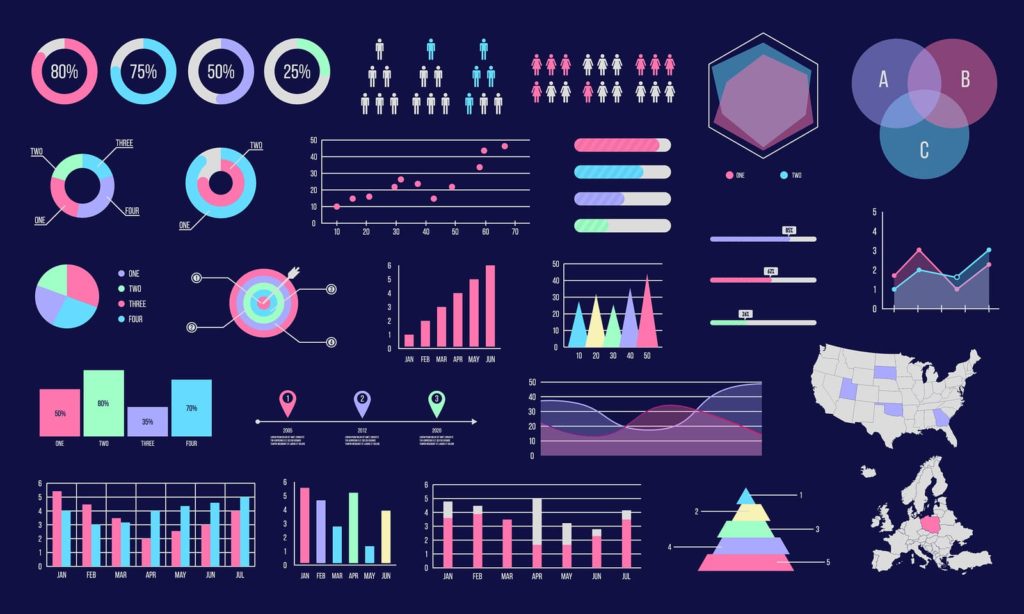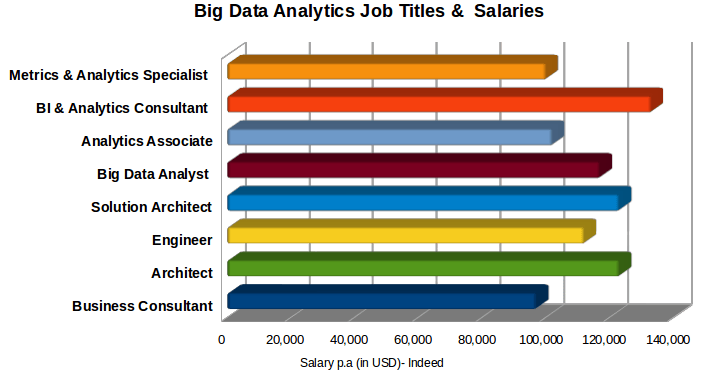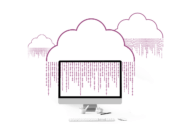
- Soft skills for Data analysts
- Main areas of improvement for a developer career in data analysis
- What data analyst careers are there?
- What new data analyst careers I should consider?
- How do I choose my career path as a data analyst?
- What is the best career in data analysis?
- What kind of data analyst makes the most money?
- What kind of data analysts are most in-demand?
Data analysts manipulate data and use it to help organisations make wise business decisions. They gather information from the data regarding specific aspects, interpret, analyse and share their findings with other stakeholders in the organisation through detailed reports.
Data is important to businesses, and they use it to transform their operations, drive growth and maximise profits. Data analysts apply their skills in using various tools to offer well thought out analysis and trends in these businesses. In this article, we present the key areas that data analysts can improve to land their dream jobs.
The US Bureau of Labor and Statistics projects that by 2028, there will be a 12% increase in new data analysts related careers. This implies that many companies will be searching for data analyst professionals to join their teams. It is, therefore, of great importance for data analysts to improve their skills and become competitive if they want to be among the most sought people for data jobs.
Having the right expertise and in-demand skills attract six-figure salaries, according to Robert Half Technology.
Soft skills for Data analysts
Data analysts are required to have strong industry knowledge and polished technical skills. Besides, they need to have the following:
- Critical thinking: data analysts should be able to look at the various company databases and data sources then critically identify trends and formulate workable findings
- Communication skills: data analysts need to have good communication skills to enable them to present their findings in an easy way that is understandable by all. They should be able to speak clearly and present their complex findings in easily understandable terms
- Analytical skills: they should have skills to analyse large amounts of data and draw conclusions from their analysis
- Attention to detail: they should be able to pay attention to key details in the data they analyse and draw the right conclusions that will help their organisations
Main areas of improvement for a developer career in data analysis
Essential skills that data analysts need to improve to land a dream job include knowledge of many technolgoies. We’ll try to summarize the most significant ones in this section.

Microsoft Excel
There is more than what meets the eye when you open Microsoft Excel. Most people just see the spreadsheets, but there is a lot more analysis power in Microsoft Excel.
R and Python are more suited to handle a large data set. However, advanced Excel methods like Macros are used for smaller data sets and quick analysis.
Data analysts working in startups or medium companies use Excel databases; hence it is a must-know tool for all data analyst beginners. As you progress, you will encounter large data sets, and therefore it will also require you to learn statistical programming language as you advance in your career.
SQL
SQL stands for Structured Query Language. It is the data industry-standard database language and an important skill for all data analysts. SQL allows to interact with large structured datasets that needs to be stored in relational databases.
As a data analyst, you need to be conversant with SQL and effectively store, manage and relate multiple data sets. Having a good understanding of data sources will be useful in your career, and SQL gives you the ability to navigate through large databases and work on demanding projects.
Mathematical skills
Data analysts should be able to mathematically process numerical data and obtain information that they can process.
Technical skills
They should possess the right technical skills and be proficient in using different database tools used in analysing data. They should also be conversant with computer programs, coding skills, using SQL, JavaScript, Python, R, XML, Hadoop, SAS and other machine learning programs.
Python-statistical programming
It is one of the programming languages used in data analytics. You need to understand concepts such as data collection, web scraping and using Python to develop web applications. Being familiar with this skill will give you an advantage when looking for a dream job in data analyst career. Python is a powerful statistical programming language that performs advanced analyses and predictive analytics on big data sets. Therefore, every data analyst should improve their skill in python or R programming languages. R is good when exploring various data sets and doing ad-hoc analysis.
Data visualisation skills

Data analysts should be able to present data compellingly and enable the stakeholders to understand what you are saying. You need to visualise data and ensure your findings are easily identified. The way you visualise data has a make-or-break effect when it comes to impacting the data you are working with. You should be skilled and use quality and eye-catching charts and graphs when presenting your findings. Also, you should aim to improve your skills in using data visualisation software like Tableau, which helps you present data clearly and concisely. Visualising data is important and being able to communicate results from data analysis offers you a competitive edge in your career as a data analyst. It is one of the valuable skill set that will make you land your dream job and make organisations reward you handsomely.
Presentation skills
Analysts should improve their data presentation skills to ensure that they are in tandem with the industry standard. Your presentation should focus more on your audience than yourself.
Machine learning
In the field of data science, machine learning has become one of the key components of an analyst’s toolkit. Data analysts are required to improve their skills in machine learning and be able to apply ML tools and concepts in their work.
Whether a developer or CTO, you need to align your personal goals and commit your time to improve these skills if you are to get your dream job in the developer career.
What data analyst careers are there?
There are several careers in data analytics. They include:
- Big data engineer: big data engineers turn large volumes of data into useful insights that companies can use to inform their decision making. They are required to retrieve, gather, interpret, analyse and report on business data. They also create software and processes that other stakeholders can work with to process data
- Business Intelligence Analyst: they analyse company data to come up with insights that can be adopted by the executives to make well-informed decisions. They scrutinise data and identify patterns and trends. Also, they answer specific requests from management regarding their findings and how they can drive business growth
- Data architect: data architects are responsible for designing the structure of complex data frameworks. They also develop and maintain databases within the company. They come up with strategies and communicate the same to the company’s management for adoption
- Data warehouse manager: they are responsible for storing and analysing data in their respective organisations. They use performance and usage metrics to evaluate and analyse the data load. Also, they identify potential risks facing data transfer or storage and come up with ways of mitigating these risks
- Data scientist: they design new ways of data mining, modelling and develop prototypes, algorithms, and predictive models. To be a data scientist, you are required to be skilled in regression analysis, different data mining techniques, decision trees and analysis
- Database manager: the database manager is required to identify any issues that databases may have and take corrective measures to solve them. They assist in designing and implementing storage maintenance by working together with database developers
- Data modeller: data modellers use their skills to come up with reports on micro and macro trends from data. They have skills in information science, programming and statistical analysis. Their findings on data trends make them help organisations make decisions
- Database developers: these professionals mainly analyse database processes and streamline or eliminate those that are inefficient. They monitor database performance, develop a new database or troubleshoot to identify issues with current databases. They also do data analysis and unit testing by working in collaboration with other data professionals
What new data analyst careers I should consider?
The new data analyst careers that developers can consider specialising in are:
- Quantitative analyst: the quantitative analyst is a career that is highly marketable in financial firms. Quantitative analysts use data analytics to identify potential financial investment opportunities and manage risks that can arise from such. They develop trading models that predict stock prices and exchange rates
- Healthcare data analyst: these are new professionals in data analysis applied in the healthcare field. Healthcare data analyst help improve the quality of life by assisting doctors with solutions to the challenges they encounter. They use data to enhance medical testing in hospital labs
- Data analytics consultant: the functions of a data analytics consultant are to deliver insights that the company can adopt in their operations. They specialise in a key research area and work with different organisations in one sector for a certain period. They are suitable for professionals who like changing work environment and love working remotely
- Transportation logistics specialist: these specialists need a data analytics background to perform their duties. Their expertise is needed in firms that transport or ship physical goods often such as Amazon. They are required to identify the best routes and efficient means of transporting the goods. They base their decisions from a large amount of data which help them in identifying and eliminating bottlenecks in transit
There are many data analytics opportunities around the globe, and data analysts need to sharpen their skills.
How do I choose my career path as a data analyst?
To launch a career as a data analyst, you need to have a background in computer science, statistics or information technology. Knowing one of these subjects will help you have an idea in database management. Then you need to gain data analyst experience through on the job training and taking online classes in analytical software programs and big data courses. You can then delve into data analyst skills while identifying one area of specialisation and then climb the ladder to becoming CTO in one of the areas of your choice.
What is the best career in data analysis?
Data analysis involves identifying trends and trajectories in data and translating them into digestible findings. Businesses collect data in the form of sales figures, market surveys, inventories, transportation costs, profit margins, etc. Data analysts are required to take this data and perform analysis, come up with solutions that can be applied to solve issues, and make beneficial business decisions.
The best career in data analysis is a data engineer. They do an interesting and exciting job coupled with a good reward. They manipulate the data and use systematic techniques that help them prepare reports of their analysis.
What kind of data analyst makes the most money?

Salaries of data engineers are the best around the globe, making it the best profession to earn the most money. They earn an average salary of $150,000 per year. They, however, require you to constantly upgrade your skillset and advance your expertise in programming, machine learning and data modelling.
What kind of data analysts are most in-demand?
According to the World Economic Forum 2020 forecast, data analysts will be in high demand in various industries. Some of the data analysts in demand will be:
- Database administrator: it is one of the in-demand profession in data analysis. Database administrators monitor and optimise database performance. They work closely with IT professionals to make data access safe and secure
- Data analyst: they work with bulk data to identify trends and information that companies can leverage to drive business growth and increase efficiency. It is an in-demand profession needed in a variety of industries ranging from finance, retail, healthcare and manufacturing. They develop methods for data analysis and interpretation.
Data analysis is a fast-growing field that offers professionals an opportunity to gain skills and contribute positive change in many organisations around the globe. If you are looking forward to starting or growing your career in data analysis, you can subscribe to our online magazine and receive the best tips. At Codemotion, we offer you the best insights on people aspiring to grow in their data analysis career.




